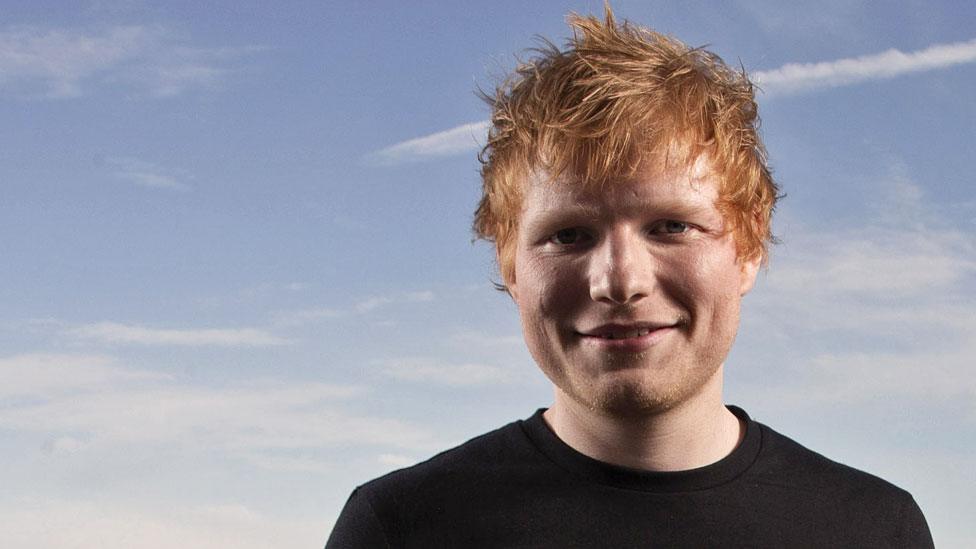Northern Ireland musicians' fears for the future of touring
- Published

Promoter Joe Dougan said shipping costs for transporting equipment to venues had grown "exponentially", along with labour costs for crews
Northern Ireland musicians have expressed their fears about the future of touring as rising costs continue to bite.
The music industry is already reeling from the financial and human impact of the coronavirus pandemic.
Increased transportation and accommodation prices are among a raft of issues now affecting artists.
Promoter Joe Dougan believes a "perfect storm" is brewing which could hit the number of gigs held in 2023.
"The way things are going there will be less middle to lower-range acts touring," he said.
"The cost of touring in the United States is particularly high, it could potentially affect the cycle of your album release.
"If the tour does not happen, there are lots of missed opportunities for your career.
"If you cannot have a grassroots scene of acts that can tour, that will have an impact."
Mr Dougan said shipping costs for transporting equipment to venues had grown exponentially, along with labour costs for crews.
"Shipping costs are a massive issue, this has been the biggest increase," he added.
"The cost of supplying labour has gone up, for example if you are looking for a lighting engineer, or a session musician, or a tour manager.
"A lot of people left the industry during the pandemic, those who have remained are highly sought after and they are spoilt for choice, if you want the best people, you will have to pay for it."
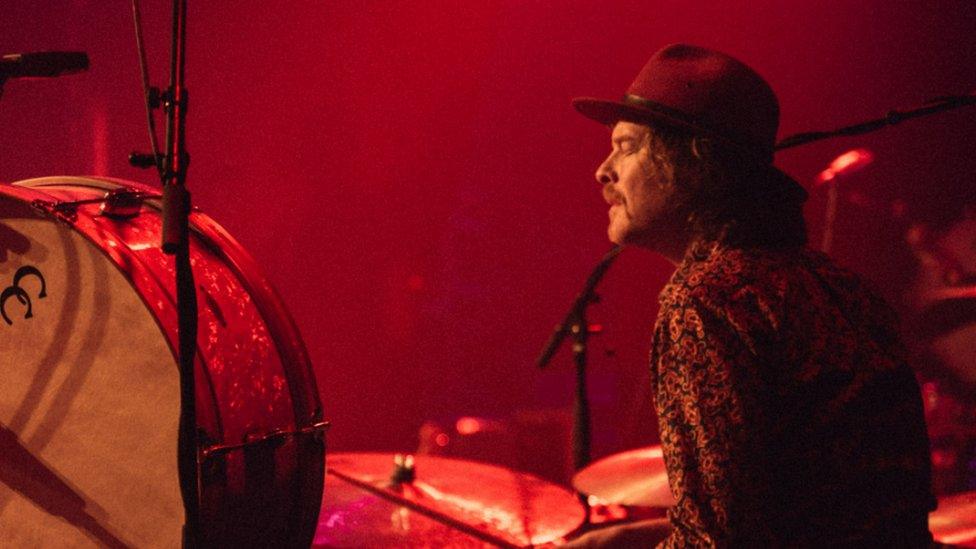
Paul Hamilton said the situation was draining "emotionally and financially" for artists
Earlier in August, renowned Irish folk group Clannad announced the cancellation, external of their United States and Canada tour planned for September and October.
They said "significant increases in touring overheads" since their original tour schedule meant that they could not "deliver these live shows to the high standard that we and our fans expect".
A quick glance at the international touring guide, external provided by the Irish Music Rights Organisation (IMRO), highlights the "complex range of challenges" which artists can encounter, ranging from obtaining carnets and visas, to airline policies on instruments.
Paul Hamilton, who manages singer-songwriter Ryan McMullan, and plays drums in his group, illustrated the problems they were faced with.
"Visa issues is a major one, we actually got ours granted [for the United States] not so long ago," he added.
"As a band, we had to pay an extra $1,000 (£820) for the visa, three years ago [when it was last renewed] we didn't have that additional cost.
"You are playing a handful of shows, nine or 10 shows, plus your backline hire and the production and the wages and everything else.
"Hotel costs if you add them up across Europe, where we would have got a room for £75 per person pre-pandemic now those rooms are £150 or £200.
"If you add it up per night, per show, it is all considerably more."
On Wednesday, McMullan announced the cancellation, external of his forthcoming Redesign tour, with the exception of his concerts in Belfast and Londonderry, saying he had "been struggling a lot lately with my mental health".
Mr Hamilton said the current situation was draining "emotionally and financially".
"It is more draining for the artist," he added.
"The financial drain at the end of every gig, as soon as we leave Ireland, is considerably a lot more.
"But also the mental drain of the two years of sitting and waiting [during the pandemic] and then it's all back, all switched on, all at the same time, it's a bit daunting.
"Ryan did a six-week tour of Europe and UK and Ireland, it started in April and six or seven flights were cancelled on that.
"You are holding your fingers every time you book a flight, that it doesn't get cancelled."
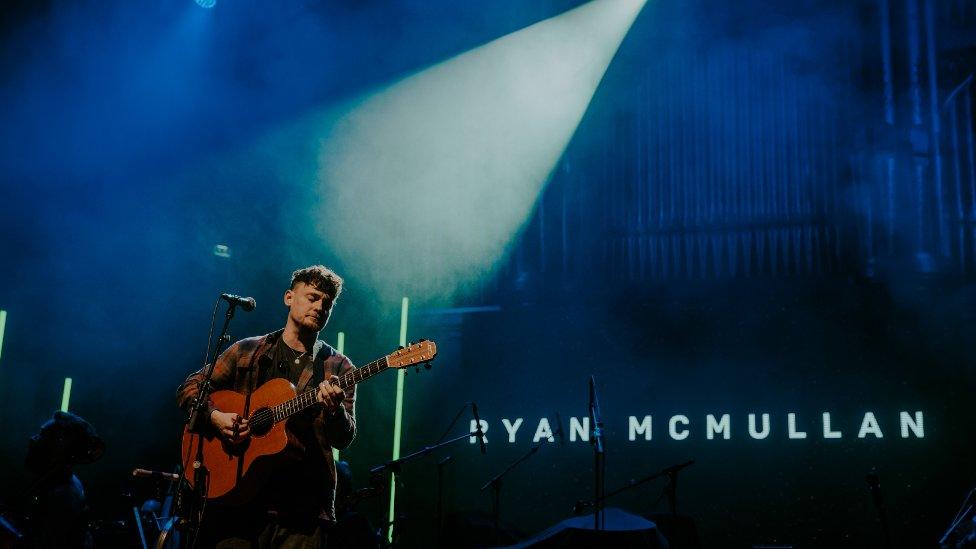
Mr Hamilton manages Ryan McMullan, who has announced the cancellation of a forthcoming tour citing struggles with his mental health
Charlene Hegarty, talent development manager with Belfast's Oh Yeah Centre, said the current economic model for putting on concerts was "unsustainable".
She said increased costs were putting some musicians from Northern Ireland off touring at present and that the whole system "needs to be overhauled".
'Guaranteed losses'
Ms Hegarty said the "cost of everything has significantly increased since 2020", but a number of support acts were still being offered £50 a gig, and that there were also issues around the percentage cut in proceeds some venues are taking for merchandise sales.
"The high costs and low fees means guaranteed losses and only bands with trust funds or private funding can afford those losses," Ms Hegarty added.
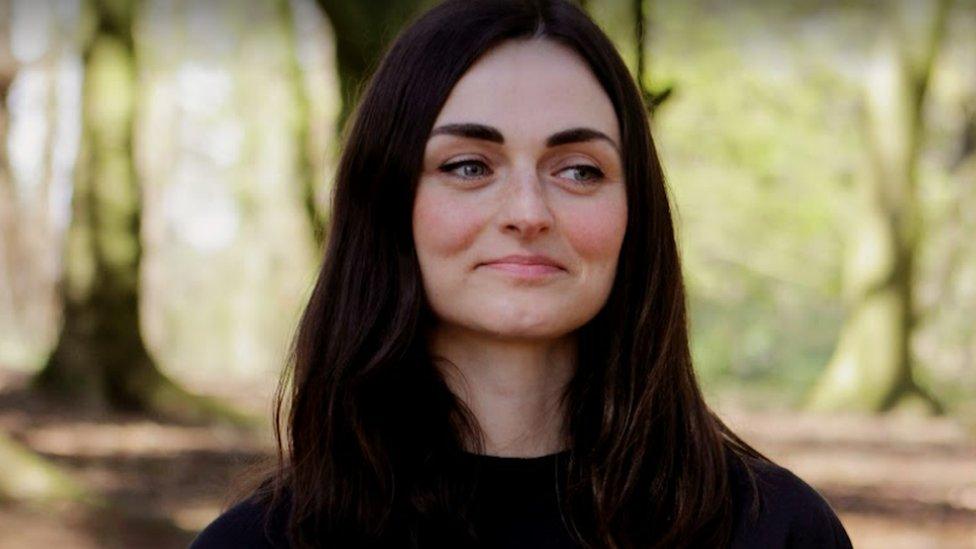
Charlene Hegarty said the current economic model for putting on concerts was unsustainable
Northern Ireland group New Pagans supported Skunk Anansie on a European Tour earlier in 2022.
Cahir O'Doherty, a member of the group, said they were "thousands of pounds" in debt following the tour, as a result of "multiple costs".
"We are still in debt from that tour and we sold a lot of merchandise, people really connected with the band," he added.
"We are going back out to Europe again in a few weeks' time, but we are in debt again, we have actually had to find funding to try and do these things, we can't rely on earning money from gigs to go on tour, which is the way it used to work.
"You would do a few hometown shows, you would earn a bit of money, put it in the bank and hope that you connect.
"Now we have to find funding, we have to have at least £5,000 in the bank to even leave the house [for a tour]."
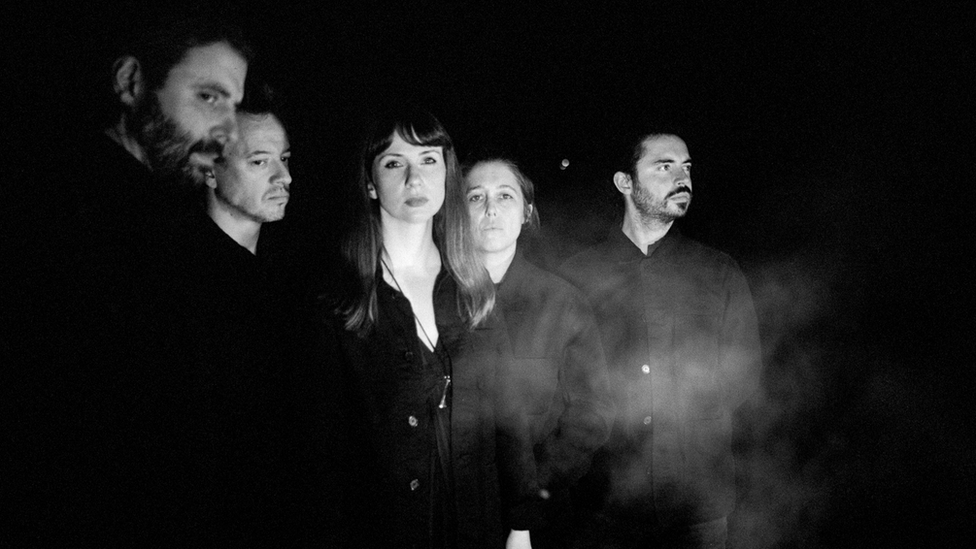
New Pagans encountered multiple costs on a tour of Europe this year
Mr O'Doherty said the path to becoming an established artist was "nearly impossible" for those starting out in the current climate.
"It is difficult, it is hard, I am a bit older, so I remember the times when I was younger and I would leave Derry and go on tour and I knew I wouldn't be in debt when I got home," he added.
"This is the difference, I knew I could go away and tour for a month, six weeks, whatever, and come home and not be in debt, but that has changed now, so a lot of bands are wary of going out on the road."
Related topics
- Published19 July 2022

- Published20 December 2021

- Published15 July 2021
